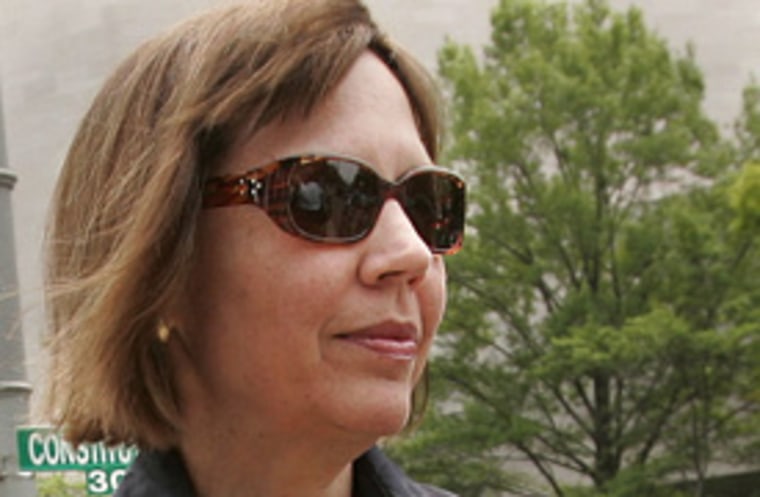Attorneys for I Lewis "Scooter" Libby don't want a jury in the CIA/Leak trial to hear testimony about why former New York Times reporter Judith Miller went to jail. His lawyers also want blocked all evidence surrounding the government's efforts to get testimony from other reporters believed to have learned of Valerie Plame's identity from officials in the government.
In a court filing Libby's lawyers argue that, "the facts relating to the contempt proceedings against Judith Miller and her 85-day stint in jail are particularly convoluted and have a heightened potential to confuse the jury," write Libby's attorneys.
The defense filing underscores that Libby always wanted Miller to testify about their discussions. Miller spent nearly three months in jail at the Alexandria Detention Center in Virginia before receiving clarification on a waiver she wanted from Libby to allow her testimony. Miller eventually testified that she was told about Plame by Libby.
Battling jury assumptions
Libby's lawyers also say that a jury may speculate about why certain reporters resisted testifying and "assume, incorrectly, that certain reporters were trying to protect Mr. Libby by fighting the subpoenas from the grand jury."
Attorneys for the former top aide to Vice President Cheney write, that opening the door to issues relating to Miller's initial refusal to testify to the grand jury, "would undoubtedly cause jurors to wonder whether Ms. Miller went to jail in an effort to shield Mr. Libby from liability, and whether Mr. Libby is to blame for her incarceration." His lawyers say that kind of speculation by a jury would prejudice the case against their client. They threaten to call Special Counsel Patrick Fitzgerald as a witness if testimony is allowed about communications between Miller and Libby concerning his confidentiality waiver to the reporter.
Libby's attorneys are also seeking to exclude from the trial any testimony that Plame's employment at the CIA was classified or covert. Additionally, the legal team is seeking to exclude any mention that disclosure of Plame's CIA employment caused, "any damage to the national security, the CIA, or Ms. Wilson herself."
And Libby's defense team also wants to block Fitzgerald from even suggesting that Libby did anything wrong when he discussed contents of a National Intelligence Estimate (NIE) on Iraq with journalists, including Miller. Libby has claimed that he was told by the Vice President that the President himself had authorized the release of key findings in the NIE, which was a classified document until that point.
Libby's trial is scheduled to begin in January 2007.
